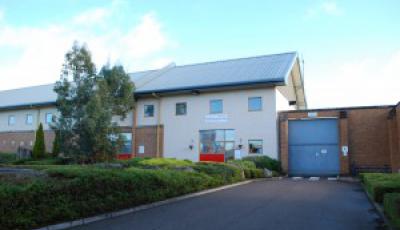From the Field: A Return to Yarl's Wood - Sharing Background and Support
Posted:
Time to read:
From the Field is Border Criminologies’ ‘mini-post’ series featuring news from researchers currently in the field. In this instalment, Border Criminologies' Blerina Kellezi returns to fieldwork in Yarl's Wood after two years in Nottingham. From 2010 to 2011, Blerina joined Mary Bosworth in Yarl’s Wood, Tinsley House, and Brook House immigration removal centres (IRCs). They investigated issues relating to quality of life and mental health in detention, migration, and gender. Blerina is now working with Sarah Turnbull on the development of the Quality of Life in Detention Questionnaire.

I grew up in Albania and so I have spent quite a lot of time over the last few weeks talking to those Albanian women who don’t speak English. Most had not travelled outside Albania before, and many were brought into detention immediately after their arrival in the UK. Unable to speak English, they cannot communicate with officers and other women. But it's not just a language deficit. They also have limited experience of interacting with other cultures. They know even less about the UK legal system, immigration rules, or immigration institutions. Their experience in detention is made more bearable by the fact that there's a group of them there together.
As in all IRCs, the women in Yarl’s Wood are offered translation through Language Line. Yet, a voice over the phone cannot translate rules of communication and interaction, culture, whole legal systems, and institutional philosophies. In the absence of language, it’s the women with the same nationality who provide the opportunity to discuss what’s appropriate or inappropriate in this new country and inside institutions like IRCs.
As an Albanian, I can create more trusting and, therefore, stronger relationships with these detainees. As one of them put it, the women appreciate talking about their problems to someone who “is not drowning in their own problems in there.” I feel like I can provide whatever cultural knowledge I myself have learned about life in the UK, such as explaining that hugging and kissing―typical forms of greeting in Albania―are not common across other cultures.
These are stories shared by many of the women in Yarl’s Wood. Women detainees, especially, find each other’s support very beneficial. It does help to share the burden of detention with women from your nationality. I’ve seen women trying to support each other or, as some describe it, “take care of each other, despite our own problems.”
Bringing people together in difficult circumstances doesn't always create relationships of mutual support. The bigger nationality groups can inadvertently (or purposefully) at times become intimidating to others who don't share the same background. Even within groups there can be a negative side to this support. The burden of distress and anxieties about their immigration cases and deportation can strain some of these relationships. However, despite the extraordinariness of the detention experience, or perhaps because of it, some women leave with friends for life.
Any thoughts about this topic? Post a comment here or on our Facebook page. You can also tweet us. See also other recent From the Field mini-posts:
Share:








